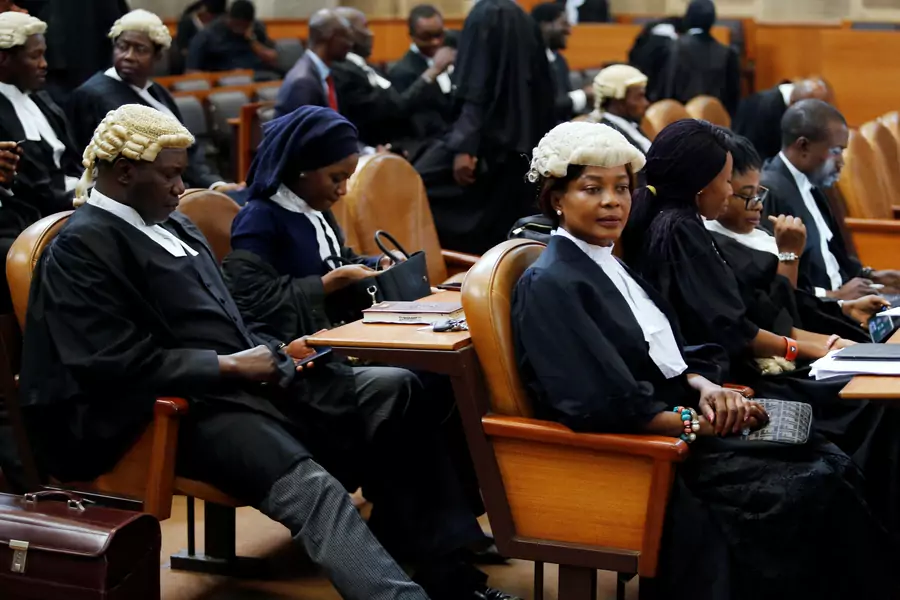A Brewing Constitutional Crisis in Nigeria

Udo Jude Ilo is the Nigeria country representative for the Open Society Initiative for West Africa (OSIWA). Yemi Adamolekun is the executive director for Enough is Enough Nigeria (EiE).
Last week, Nigerian President Muhammadu Buhari suspended the Chief Justice of Nigeria (CJN), Walter Onnoghen, and swore-in Justice Tanko Muhammad as the acting CJN. President Buhari was purportedly acting on an order from the Code of Conduct Tribunal (CCT). The CJN was brought before the CCT for not disclosing his assets. Onnoghen later admitted this nondisclosure. However, President Buhari did not follow the provisions in the constitution for the removal of a chief justice. The move casts doubts about the commitment to the rule of law in Nigeria and the integrity of the upcoming elections on February 16.
More on:
There are two ways that the CJN can be removed from office. First, the president can remove the CJN only after making a case for his removal to the senate and receiving the votes of two-thirds of its members. Second, the National Judicial Council (NJC) can recommend the removal of the CJN to the president, at which point the president can remove him. President Buhari neither addressed the senate nor received a two-thirds majority in favor of the CJN’s removal, nor did he receive a recommendation from the NJC that the CJN be removed.
Let’s be clear, the Nigerian judiciary has been grossly compromised. The CJN admitted to omissions on his asset declaration form, then refused to step down, and he had been trying to prevent an investigation. The president of the Nigerian Bar Association is also being investigated for fraud, as is the head of the CCT who signed the order President Buhari implemented. But, that does not justify the president’s breach of constitutional procedure.
The courts in Nigeria, with all their imperfections, have nevertheless played a stabilizing role in matters of electoral conflict. Beyond the broader roles of the judiciary, under Nigeria’s law, the Supreme Court has original jurisdiction and the final say in matters related to election petitions in a presidential election. That is why the timing of CJN’s replacement is so troubling. Many analysts, including the authors of this piece, see the move by the president as a calculated attempt to gain some electoral advantage should an election petition between the president and the main opposition party end up in the Supreme Court. Domestic and international condemnation of the move has been swift.
More on:
 Online Store
Online Store